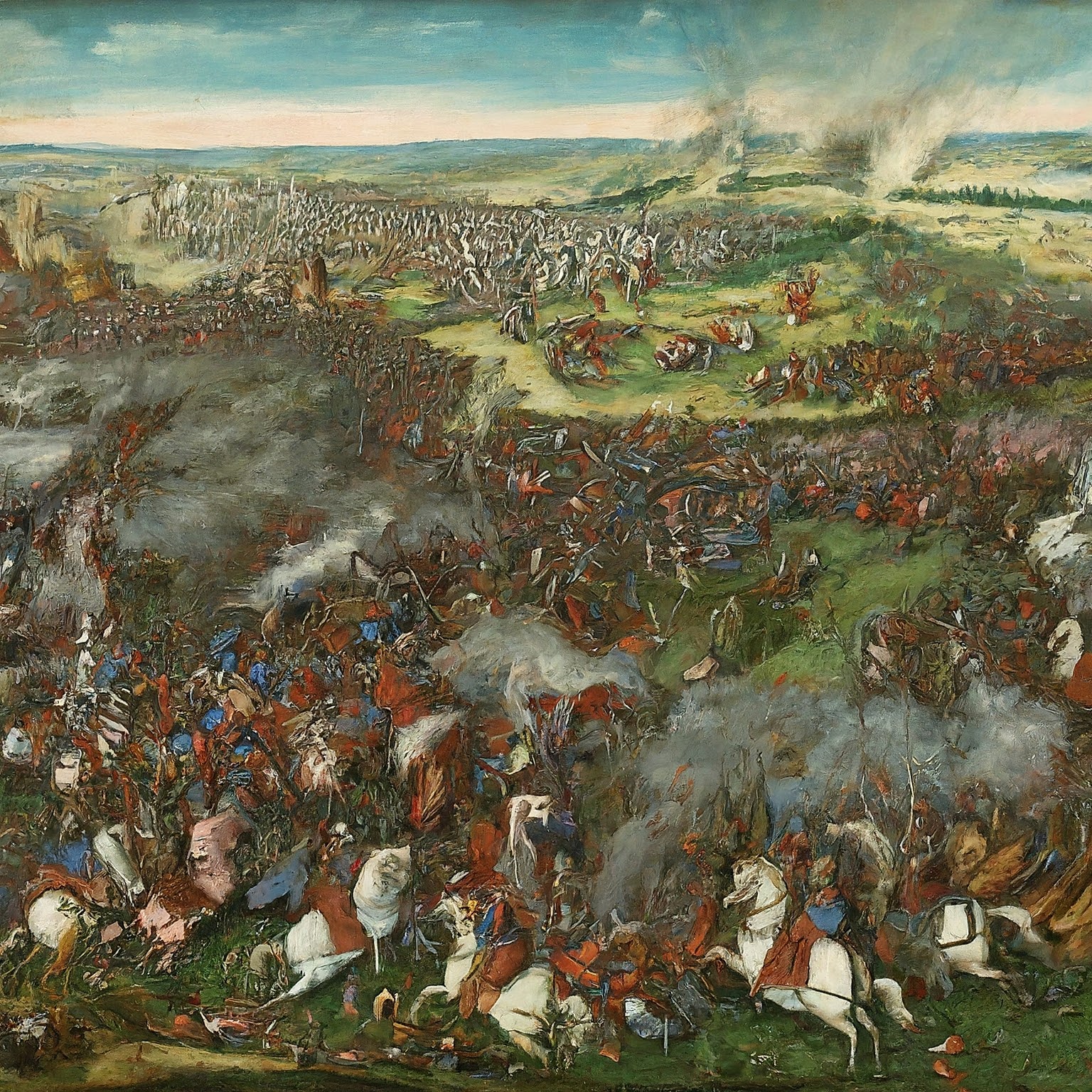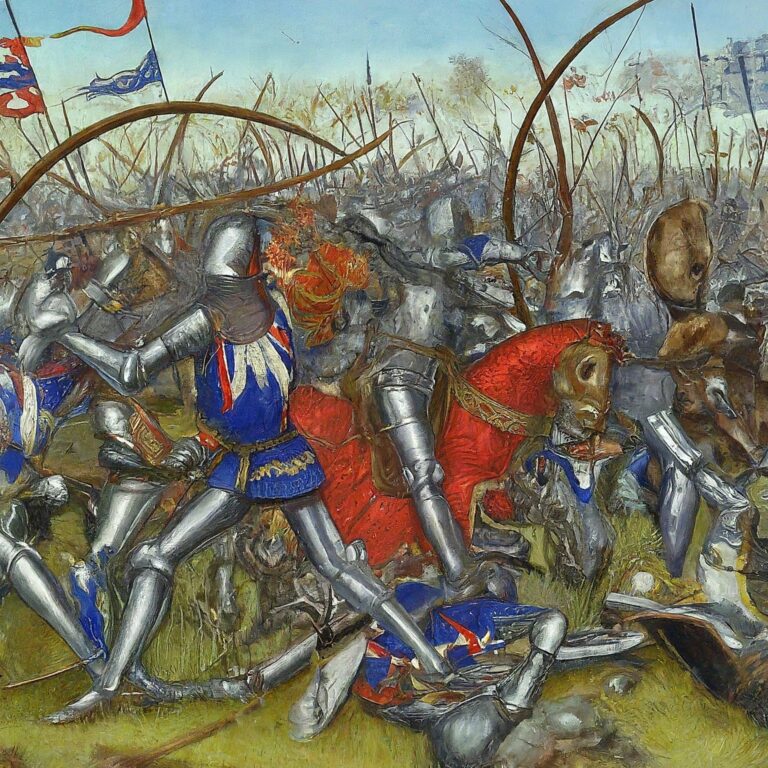The Battle of Tours, fought in October 732 CE, was a crucial confrontation between the Frankish forces under Charles Martel and the Umayyad Muslim army led by Abdul Rahman Al-Ghafiqi. This battle, which took place near the city of Tours in modern-day France, is often regarded as a turning point in European history, as it halted the northward expansion of Islam into Western Europe.
The Umayyads, who had already conquered much of Spain and parts of southern France, sought to extend their control further north. Charles Martel, the Frankish leader, gathered a force of approximately 30,000 men, consisting mainly of infantry. The Muslim army, which numbered between 20,000 and 50,000, was primarily composed of cavalry.
Charles chose a defensive position on a high ridge, forcing the Muslim cavalry to charge uphill. The Frankish soldiers formed a tight defensive formation, and despite several Umayyad assaults, they held their ground. The battle was marked by a series of cavalry charges, but the disciplined Frankish infantry repelled the attacks. After a day of intense fighting, the Umayyad leader, Abdul Rahman, was killed, and the Muslim army retreated during the night.
The Battle of Tours had far-reaching consequences. It is often credited with preserving Christianity as the dominant faith in Europe and preventing further Muslim expansion into the continent. Charles Martel’s victory elevated his status as a military leader and paved the way for his descendants, including Charlemagne, to establish the Carolingian Empire.
While the battle itself did not end Muslim rule in Spain, it did secure the northern regions of Europe from Umayyad conquest, shaping the religious and political future of the continent.

